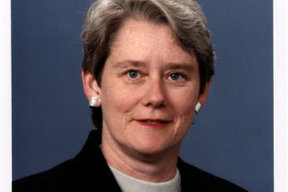Center City criminal-defense attorney Barbara McDermott is looking to bring her three decades of legal experience to the bench in her second run for Court of Common Pleas.
McDermott, an open lesbian, is vying for one of 10 Common Pleas seats in the May 17 primary. She lost her first bid for the bench in 2001, but is returning to the race a decade later with renewed vigor.
McDermott, 55, is a native of Aliquippa, near Pittsburgh, and attained her law degree from Georgetown University.
After graduation, McDermott worked for four years in Harrisburg prosecuting hazardous-waste dumpers before moving to Philadelphia and spending six years as an assistant district attorney in the homicide unit.
From 1990-2001, she served as a judicial law clerk for a Common Pleas judge and left the city position to run her own campaign for judge.
In her first campaign, McDermott was endorsed by a number of local progressive groups, including the Liberty City Democratic Club and also the Philadelphia Inquirer.
For the past 10 years, McDermott has devoted her efforts to her own criminal-defense firm.
She said the spark for law was ignited in her from a young age.
“I was one of those kids who got really angry because of all the things I was told I couldn’t do just because I was a girl,” she said. “At my First Communion, I remember being angry I was told I couldn’t play ball with my male cousins because I was wearing a dress. I wanted a paper route but I was told I couldn’t because I was a girl. In the summers I wanted to work in the steel mills but was told I wasn’t allowed because girls didn’t do that. So I saw a lot of inequity and I began to think that being a lawyer would help me work against that. And I was always told I argue too much, so I felt like law would be a good fit for my personality.”
McDermott said that, as for most LGBTs, her coming-out process was a journey of education for her family, friends and coworkers — one that wasn’t always easy.
“I’ve spent years, probably decades, working to show my family that being gay or lesbian is OK. I’ve had situations where friends of mine would have arguments over whether they could tell their kids about my sexuality. In the workplace, when I first started my career, [sexual orientation] wasn’t really discussed — there wasn’t necessarily overt homophobia, it was just kind of ignored.”
In the past decade, McDermott said, the city has seen radical change, with more and more legal professionals coming out.
McDermott said she was initially drawn to Philadelphia because of the diversity in the city’s judicial branch.
“Back in the ’80s it was really the only bench in the commonwealth with any diversity. We had African-American judges and women judges, and I’d been working around the state and just hadn’t seen that elsewhere.”
The Court of Common Pleas now has three openly LGBT judges and three out judicial candidates in the primary, including McDermott.
While the bench continues to reflect the diversity of the city, McDermott said she’s seen over the years that judges do not always have that same commitment to equality for the defendants who come before them.
“I’ve literally tried thousands of cases in my career. I still respect the bench but I see the weaknesses that exist. A lot of my practice has been court appointments and, in order to ensure equity for all of us, I think we have to treat those given the least amount of priority with respect and dignity. I don’t think that happens right now, and I’m strongly committed to that.”
Apart from her career experiences, McDermott said that, if elected, her personal background would also be integral to how she would oversee her courtroom.
McDermott is the mother of two adopted daughters, now ages 19 and 21, who are of mixed races. Her partner also adopted the girls, and McDermott said their family structure has given her a unique perspective that would assist her on the bench.
“I’ve been exposed to a lot and absorbed a lot that has given me a certain appreciation for our differences. For instance, my ideas about racism have changed after spending the last 20 years raising children of color. There’s a difference between understanding racism on an intellectual level and in your day-to-day life. I’ve had discussions before about how being a lesbian made me better equipped to raised mixed-race kids, and people have looked at me like I’m crazy, but I know what it’s like to be different and they’re different. And that’s helped me to understand them and to help them.”
McDermott also joked that another skill acquired from motherhood would be key if she ascends to the bench: “I’m a very good judge of character and I can usually tell who’s lying and who isn’t — my kids hate it. They could never get away with anything.”
Jen Colletta can be reached at [email protected].
